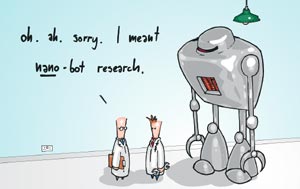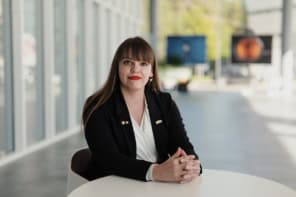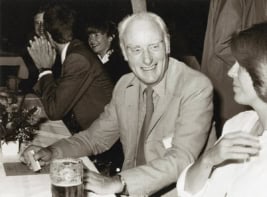Drinking, carousing and late nights are what many students will recall most fondly of their PhD days. Here Robert P Crease reveals what one really learns during this vital training period

Five months ago I asked readers to send me their thoughts about “the most important thing they learned in graduate school” (“Surviving graduate school”). I received about three dozen replies, which included maxims, lists of maxims and stories. Some people addressed the question from the perspective of advisors, others from that of students.
As I suspected, your responses had less to do with theories, techniques and information, and more to do with navigating the “phase transition” from undergraduate to fully fledged researcher. It is a challenging period, where the textbook ceases to be central to the learning process. The focus shifts instead to the laboratory, where one must act as part of a community in a rapidly changing environment.
Robert H Austin of Princeton University, for instance, observed that despite all of the electricity and magnetism courses that students may have taken, they usually cannot tell you what it means, say, for a coaxial cable to be 50 Ω. “They usually take an ohm meter, discover that the DC impedance is infinite and not 50 Ω, and declare the cable ‘bad’,” he said.
Austin’s view was that textbook-centred learning tends to shape an undergraduate’s view of physics itself. “They regard all physics as mathematics and do not believe in the physical reality of the world,” he explained. “When students start lab work, they typically have not seen the miracle of data revealing something new. So they are extremely sceptical when an experiment reveals things not in the textbooks, and struggle mightily to prove that the experiment must be wrong.”
Choosing an advisor
Others cited more specific lessons that they had learned, such as the importance of carefully choosing an advisor. “Everything else is a piece of cake,” concluded Peter Griswold. “Choose your supervisor with the same level of care as you do your area of research,” counselled Dominic Lloyd-Lucas.
Robert W Cahn of the University of Cambridge, whose memoirs of his experiences as a graduate student at the Cavendish are about to be published, urged: “Keep clear of advisors who regard a graduate student as a technician who simply is supposed to do what he is told (even if he isn’t told properly).”
Even advisors who are inspiring, knowledgeable and helpful can be difficult. Michael Duff recalled his days as a PhD student under the supervision of the Nobel laureate Abdus Salam at Imperial College, London. “Salam travelled a lot – he would set you a problem and then disappear. When he returned you would try to describe your progress and he would say: ‘No, no, no, that’s old hat – what you should be looking at is this.’ So after a while we wised up and tried to avoid him, but the one place you couldn’t avoid him was the men’s room, so if you were unlucky, that’s where you were given your research project. The challenge was to finish the problem before Salam decided he had a more interesting one.”
Choosing a project
Another popular response from readers concerned projects and instruments. Many wrote how easy it was to get lured into unworkable projects. Some were tempted by flashy projects that embodied buzzwords heard in lectures – only to find out that these projects were boring, time-consuming and unproductive. Others admitted to being seduced by “the fun of messing around with expensive equipment that churned out streams of data”, or by “enjoying the mechanics of manipulating, analysing and plotting the results by computer”.
Other axioms included: “work fast” (Colin Pykett); “change one thing at a time” (Geoff Hunt); “tenacity” (Tamzin Lafford); “look at the wider picture as well as the daily issues” (Steve Hoath); “if a job is worth doing, it’s worth doing well (enough for the purpose in hand, to do it any better is a waste of time)” (Pykett and others, quoting a famous lab saying).
“A month or two in the lab can save you several hours in the library,” quipped James Faller of the National Institute of Standards and Technology in Boulder, Colorado. “Don’t treat a component as a black box. It will probably pay you to understand what is going on inside the box,” warned Brian Tyres. “Assume nothing and believe no-one,” said Thomas Morgan. “It is surprising what you can achieve if you don’t mind who takes the credit” (Tyres, again, quoting the late General Alexander).
The critical point
All of these remarks suggest that what is most important about the PhD training process is learning successfully how to act in the complex and constantly changing lab environment. This point was eloquently made by Heather Williams at Manchester Royal Infirmary.
Williams’ PhD was an interdisciplinary project in medical imaging. For a while she found it difficult to carry out, until she began to realize that it required “understanding and accommodating everyone” as much as it involved “time at the image-analysis workstation, the clinic or the radiochemistry lab”. Success meant “stretching your brain around logistics and politics, as well as theories; developing in character, as well as knowledge”. Williams concluded: “What you achieve is as much about who you become as about what you do.”



